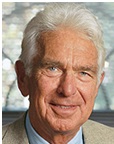|
 |
|
 |
|
|
||
Noel Tichy
American business professor, writer and consultant (pictured right).
Key books
The Transformational Leader (1986) written
with Mary Anne Devanna (pictured right below) Business success requires transformational leaders who continually:
Control Your Destiny Or Someone Else Will (1993) written with Stratford Sherman (pictured right) This gives the lessons from Jack Welch’s (pictured right below) hugely successful transformation of General Electric:
a) change
b) visionary leadership Inspiring people to achieve a future, customer driven ideal.
c) customer focus Delighting customers through:
d) global competitiveness Each General Electric business had to be the world number one or two in its market
e) great management This requires
Key quote on business success Control your destiny or someone else will (book title) Judgment (2007) written with Warren Bennis (pictured right) Successful leadership requires:
Key quote With good judgment, little else matters. Without it, nothing else matters.
Judgment On The Front Line (2012) written with Chris DeRose (pictured right) Any organization must motivate and fully exploit the knowledge, creativity and experience of its front line employees, because they are in direct contact with customers. To do this, leaders and managers must recruit and train the best people and apply the 4 C’s:
a) context (ensuring employees know how they contribute to organizational objectives)
b) control (empowering people to take responsibility for customer driven results and so trusting them).
c) care (effectively communicating to people that the organization really cares about their welfare).
d) creativity (encouraging people to find new solutions to customers’ problems).
Key quote You can learn from the workers who are closest to problems and interact with customers on the front line every day.
|
|
|
||
|
|
||
| Copyright © wisdomtowin.com 2025 All Rights Reserved | ||
|








